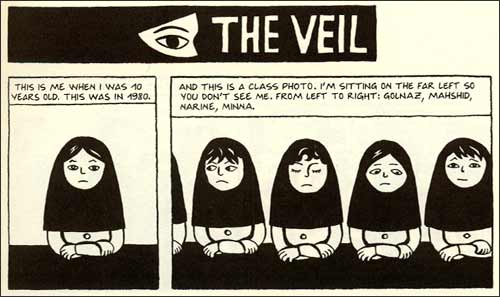Nicole and Vivian's presentation on Iranian women made me realize how fortunate I am. They presented an article from the New York Times, "Courageous Women of Iran," which highlighted the equalities and rights women are stripped of. Iranian women are required to wear a scarf to cover their hair, are reprimanded for "rebellious" behavior, and even need the permission of a man to get a higher education in college (Nicole). However, through all the adversity, women are "ready to fight for their equality and rights" (Nicole). It is exciting to see how women in Iran are challenging the the Fundamentalist ideas, just like how Marji often spoke out against the textbook in school, and just like Marji, Iranian women are challenging the veil (Nicole). Many women are also running away from home, escaping to other countries, especially the U.S., to gain a college education (Vivian). Iranian women are on the track to gaining more rights and equality and hopefully one day soon I will not feel like I am at an advantage to Iranian women, but we will be equals.





















